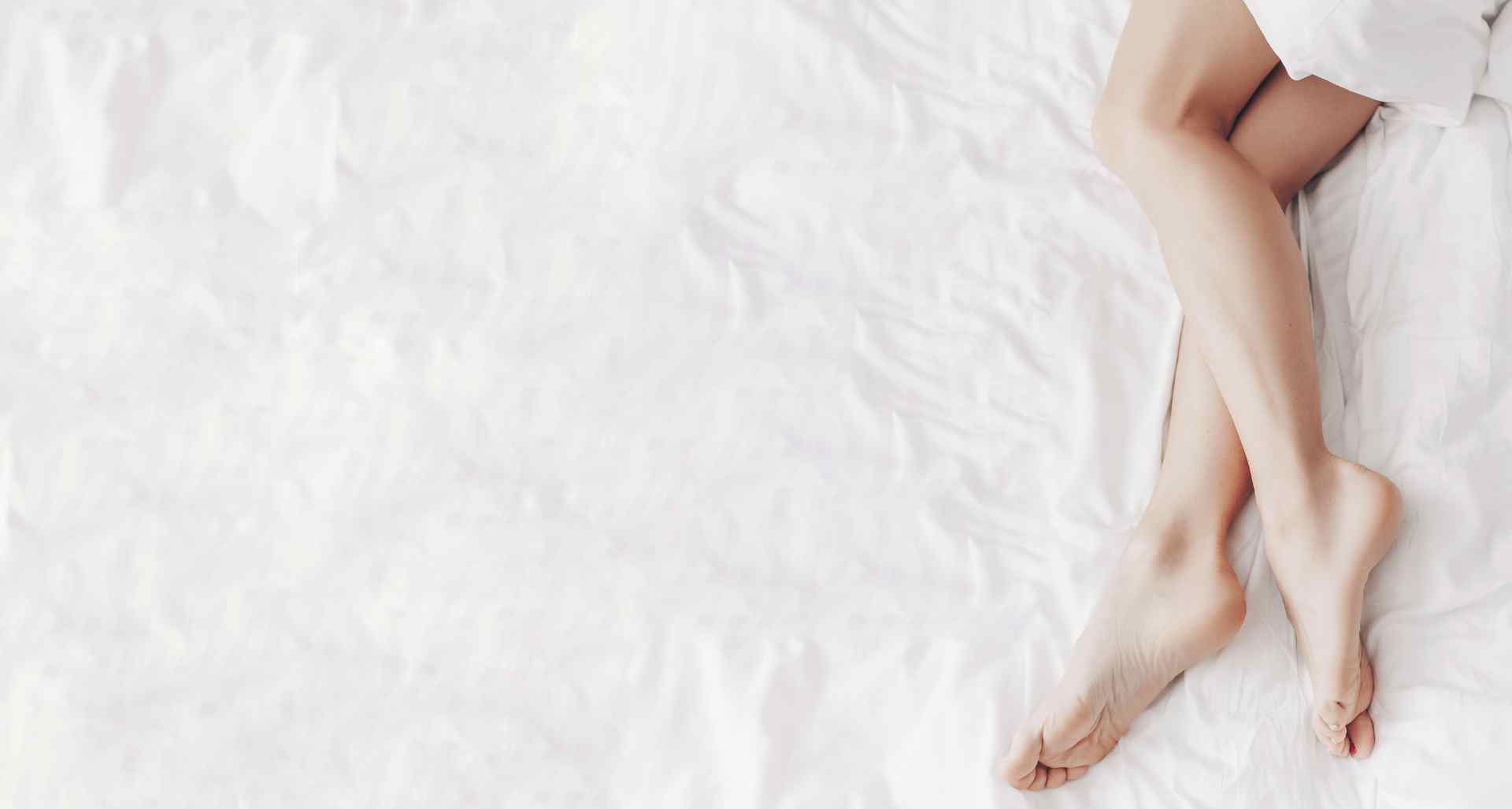Could Weight Loss Be as Easy as a Good Night’s Sleep?
Last updated on May 17th, 2024 at 02:07 pm
Thinking of joining the gym? Hold that thought! Research suggests there could be more to ‘you snooze, you lose’ than you think. When it comes to losing weight, the bed isn’t the first thing that comes to mind, though according to Panda London sleep coach Max Kirsten, it could be the best place to start, “sleep is the most underrated weight loss tool available, it also improves the quality of your skin” Max says, who’s better sleep workshops have helped people all over the world.
Before you dive into your PJs- for sleep to help you lose weight, there are a few things to remember. Doughnuts before bed for example are not going to help. Darn! So, what is? First, let’s take a look at how sleep can help us with our weight loss goals.
How can lack of sleep affect weight loss?
Mid-morning munchies? Need. Sugar? Before you dive into the cookie jar, it could be that you’re tired. Whether it’s uncomfortable bedding or a snoring hubby getting in the way of you and a good night’s kip, not clocking enough hours can lead to weight gain.
Unbalanced hormones
Sleeping rebalances hormones that regulate your appetite, like ghrelin and leptin, to tell you when you’re full and you’ve had enough. When these are out of whack, it’s hard to assess if you are hungry properly.
Increased snacking
Research has shown that people who are not getting enough sleep tend to snack on high-carb foods such as sugary drinks to increase their energy; this can lead to diabetes and weight gain.
Fat storage
Higher levels of ghrelin in the body cause an increased appetite, which can lead to your body storing fat. This can also affect how the body releases energy. The hormone imbalance can also affect your metabolism, making it less effective in burning excess fat.
Mood and motivation
Lack of sleep, lack of motivation! It seems a good night’s kip and a good mood go hand in hand; you are more likely to feel energised and ready to hit an early morning workout or take that lunchtime walk if you are well rested—another reason to book in a few early nights.
So, should you diet and exercise when tired?
Wondering whether to try and diet without enough sleep Our sleep expert Max suggests a different approach. “Undersleeping and pushing yourself to diet is a punishing approach.” Want to lose weight? Start with upping your amount of quality sleep. You will have more energy for working out, and those compulsive urges to eat junk food will disappear,” He says. You will naturally feel less anxious, another side effect of lack of sleep. “When we don’t sleep, we feel more emotional, making us more prone to eat on our feelings”. Max says. Focus on regulating your sleeping routine and looking at ways to improve your sleep quality is the best place to start to get back into those jeans! One thing worth looking at is what to eat before bed to ensure a good night’s sleep and wake up feeling refreshed

What’s best to eat before bed?
We know doughnuts are out, though what’s in? A lot, actually. Restrictive diets like cutting out carbs are not always helpful. “A balanced meal containing all the food groups will maintain your blood sugar levels, meaning less waking up at night,” our sleep coach says.
Still fancy a snack before bed? Here are a few things to nibble on without sabotaging your weight-loss goals.
Almonds- Swap cookies for a handful of these snooze-approved nuts! Almonds are full of healthy fats and Vitamin E which will fend off the midnight munchies.
Banana’s– Feeling peckish before bedtime? Go bananas! The yummy fruit is full of serotonin which converts to melatonin making you sleepy.
Protein shake- Whizz up a bedtime smoothie from low-fat milk and strawberries and get slurping! Milk is rich in tryptophan which will have you yawning into your PJ’s
Also, consider supplements, especially in the winter. Getting the right mix of vitamins will give your body everything it needs to rest properly. Right then, belly’s full, now let’s look at how your sleeping environment can help get you back in those jeans!
What does an ideal bedtime look like?

Just like the perfect pair of trainers set you up for a good run, perfecting your bedtime will set you up for a good sleep! So how do we do that? Let’s take a look.
Love your bed – “You need to love your bed”, our sleep coach says. Everything from the right duvet to comfy bedsheets can play a part in helping you drift off. Ensuring your bedding is soft, cool, and fresh will ease you into a more restful sleep. Is current bedding not cutting the mustard? You might want to try bamboo! The wonder fabric is antimicrobial and makes for scrumptiously soft bed sets.
Keep it cool – A big cause of interrupted sleep is overheating, so it’s best to get the right duvet. Bamboo duvets are naturally thermo-regulating, keeping you breezing through summer and snug as a bug in winter. Planet-friendly and seasonal-friendly bedding– we call that a win-win!
Keep it regular – Whether you are a night owl or a morning person, sticking to the same bedtime every night will do your body wonders. A bit like working out it’s best to keep it consistent. “Regularity is key for people struggling to sleep or lose weight” Max says, who believes it’s best to find a routine that works for you as we are all different”- Indeed!
Another thing we all do differently is sleeping positions, though when it comes to weight loss- what one is best?

What are the best sleeping position for weight loss
Front, back or side? Well, they all have their uses when it comes to a good night’s sleep.
Back sleepers
Sleeping on your back can be better for face muscles (If you’re after some cheeky cardio) This can give you a more defined face and have a lymphatic effect on toxins that can cause bloating.
Side sleepers
Side sleeping can aid digestion, allowing your body to clear itself and preventing issues such as constipation and gastroesophageal reflux. You may be better sticking to left than right, though research suggests that right-side sleeping can worsen GERD symptoms.
Front sleepers
Front sleeping can lead to a deeper quality of sleep if you find it most comfortable. And our sleep coach reminds us that when it comes to sleeping positions choose the one that is best for you. Ensuring you have the right pillow and mattress can help keep you aligned and supported no matter what position you choose. This is what’s going to help you get the best rest. And when it comes to losing weight, the better rested you are, the stronger you will be, whether saying no to dessert or tackling a morning run. According to our sleep coach, “Sleep underpins well-being mentally and physically”. Bring on bedtime!
The Take – Away
Whatever your reasons for wanting to lose weight, our study suggests sleeping well is the best place to start. Let’s take a quick recap…
Getting sufficient sleep can regulate hormone levels that will keep your appetite healthy, preventing you from relying on sugary snacks to get you through the day, leading to weight gain and other potential health conditions.
Enough sleep is nature’s best mood booster – it will have you waking up feeling refreshed and more likely to take on those workouts and stay more active.
Before dieting, looking at your bedtime routine and ensuring you have everything you need to get a comfortable night’s sleep is the best place to start. From waking up with more energy to making better food choices, sleep is your ultimate superpower for staying healthy. Looking good starts with feeling good, and so perhaps the only thing on the menu tonight… should be setting a regular alarm (on vibrate) to get you in bed for an early night!
FAQ
How can sleep help me lose weight?
Last updated on May 17th, 2024 at 02:07 pm
Sleep helps you lose weight in several ways. First, sleep helps to regulate your hormones, including ghrelin and leptin. Ghrelin is the “hunger hormone” that tells your brain you’re hungry. Leptin is the “fullness hormone” that tells your brain you’re full. When you don’t sleep enough, your body produces more ghrelin and less leptin. This can lead to increased hunger and make it more difficult to resist cravings.
Second, sleep helps to boost your metabolism. Your metabolism is the rate at which your body burns calories. When you don’t get enough sleep, your metabolism slows down. This means that your body burns fewer calories, even at rest.
Third, sleep helps to improve your blood sugar control. When you don’t get enough sleep, your body becomes more insulin-resistant. Insulin is a hormone that allows your body to use glucose (sugar) for energy. When you’re insulin-resistant, your blood sugar levels tend to be higher. High blood sugar levels can lead to weight gain and other health problems.
How much sleep do I need to lose weight?
Last updated on May 17th, 2024 at 02:07 pm
Most adults need between 7 and 9 hours of sleep per night. However, the amount of sleep you need may vary depending on your individual needs. If you’re trying to lose weight, it’s important to aim for at least 7 hours of sleep per night.
